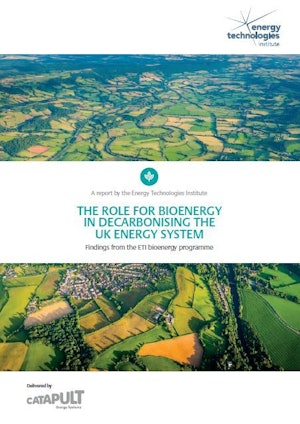The Role For Bioenergy in Decarbonising the UK Energy System: Findings from the ETI Bioenergy Programme

Geraint Evans
Programme Manager

Bioenergy, derived from purpose-grown biomass and waste, is currently the largest source of renewable energy in the UK. The Energy Technologies Institute’s (ETI) integrates findings from the ETI’s research programme, delivered over the last 10 years, to set out a vision for bioenergy in a low carbon UK energy system:
• In the context of UK energy system decarbonisation, the value of bioenergy within the energy system is greatest when combined with CCS to deliver negative emissions. Strategies to develop a CCS sector in the UK must include Bioenergy with CCS (BECCS).
• In the absence of CCS, the value of bioenergy is greatest when producing gaseous or liquid fuels for use in sectors which are otherwise difficult to decarbonise, and where no lower-carbon options are readily available.
• The flexibility of gasification with syngas clean-up makes it resilient to wider energy system decisions. Investment is needed to deploy this technology at a commercial scale.
• The UK has the potential to increase biomass feedstock production in ways which deliver additional environmental benefits. Greater focus is needed on developing markets and business models which encourage new planting in suitable locations.
To develop and expand the UK bioenergy sector sustainably and in a way which is strategically valuable to the UK’s decarbonisation efforts, action must be taken to develop sustainable feedstocks supplies and demonstrate the technical and commercial viability of key technologies. This report sets out four key recommendations to help the UK capitalise on key opportunities to develop the bioenergy sector.
Geraint Evans
Programme Manager